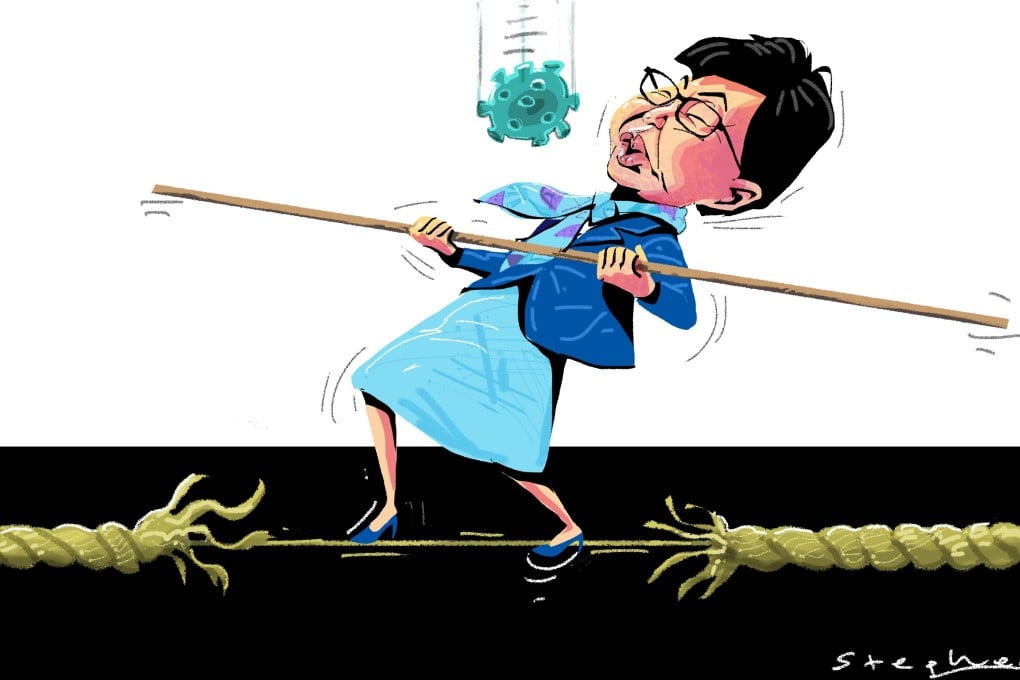Advertisement
Opinion | In 2003, Sars and Article 23 shook up Hong Kong governance. A repeat with the coronavirus and protest crises is unlikely
- Government credibility is at an all-time low while hostility towards the mainland has surged, narrowing the choices for remedial action
- Hong Kong is caught between the dictates of ‘one country’ and the openness of ‘two systems’
Reading Time:3 minutes
Why you can trust SCMP

Not since 2003 has Hong Kong been embroiled in a double whammy of a political crisis and public health scare. Back then, mass protests against national security legislation, coupled with the severe acute respiratory syndrome outbreak and economic recession, triggered an unprecedented governance crisis that ultimately led to the departure of then chief executive Tung Chee-hwa.
Advertisement
Since mid-2019, a fast spreading anti-government movement unleashed by the extradition bill controversy has seen incessant protests by hundreds of thousands of people, sometimes accompanied by arson, vandalism and disrespect of government authority. Many of those taking part and arrested are young students. In other societies, such large-scale outbursts would have toppled the leadership.
There is no sign of the protest movement subsiding and government credibility has been badly hit. The outbreak of the new coronavirus originating from Wuhan has exposed how an administration lacking popularity and legitimacy is showing further stress amid uncertainty, blame and public fear as a result of the epidemic threat.
Past lessons here and elsewhere tell us that the mishandling of a natural calamity is often a turning point in the fate of a government – the Sars outbreak for Hong Kong in 2003, Hurricane Katrina for the US in 2005, Typhoon Morakot for Taiwan in 2009, and the devastating bush fires in Australia since late last year.
In 2003, once the Sars epidemic was under control, Hong Kong began to recover gradually with Tung withdrawing the national security bill and Beijing adopting support measures like the Closer Economic Partnership Agreement (Cepa) and the individual visitor scheme to boost the local economy through integration, and later replacing Tung with Donald Tsang Yam-kuen, a former administrative officer, in 2005.
Pan-democrats then turned their agitation towards demands for universal suffrage in electing the chief executive and legislature. Both the central and Hong Kong governments were willing to engage in dialogue. Tsang’s ascendancy attracted confidence at a time when the public at large still trusted the integrity of the civil service.
Such an approach to alleviate the governance crisis, however, cannot be replicated this time. Economic integration measures no longer work to reduce political pressure. With a more strained “two systems” relationship and an assertive nativism driving hostility towards mainlanders in recent years, integration without addressing the city’s capacity constraints and institutional differences would backfire.

Advertisement
